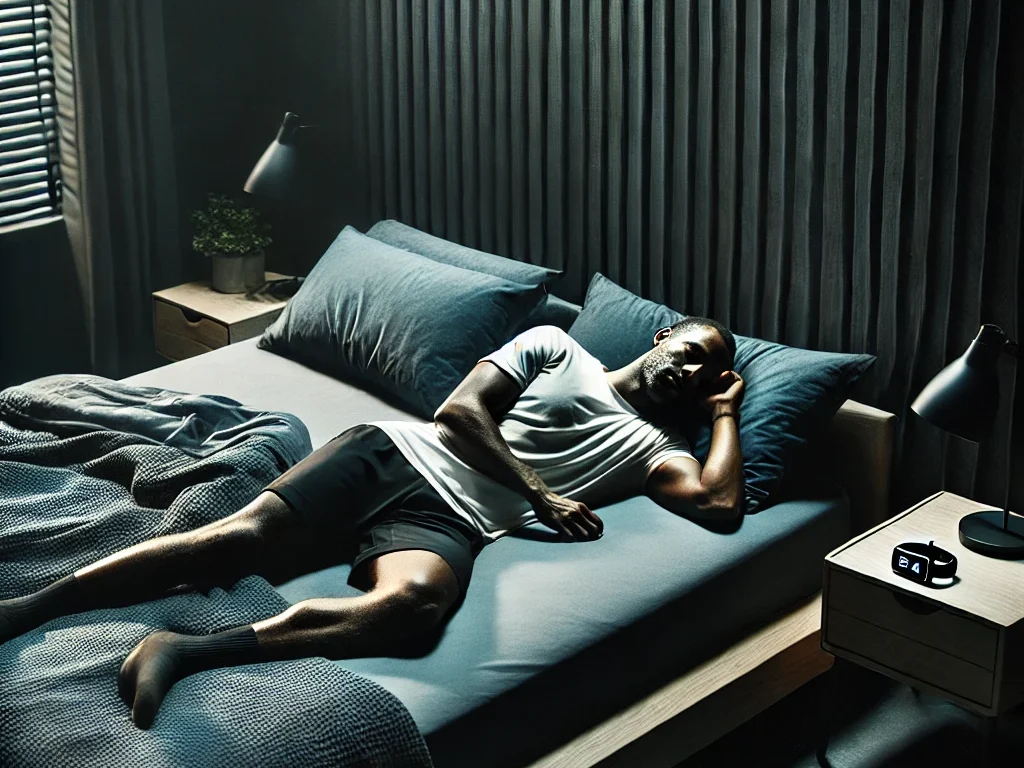
When it comes to athletic performance, many athletes focus on training, nutrition, and hydration, often overlooking one of the most critical elements: sleep. Sleep is not just a passive state; it is a highly active process where the body repairs, restores, and recharges itself. For athletes, the quality and quantity of sleep can be the determining factor between peak performance and suboptimal results.
In today’s fast-paced world, where distractions are abundant and schedules are packed, getting adequate sleep can be a challenge. Yet, understanding the profound impact sleep has on athletic performance and recovery is essential for athletes looking to achieve their goals and maintain their physical and mental well-being.
This blog will explore the key role that sleep plays in enhancing athletic performance, promoting recovery, and preventing injuries, while offering tips for optimizing sleep quality.
1. How Sleep Impacts Athletic Performance
A. Muscle Recovery and Repair
During deep sleep, the body releases growth hormones that are essential for muscle repair and growth. These hormones help repair the micro-tears in muscle fibers that occur during intense workouts, allowing the muscles to recover and grow stronger. Without sufficient sleep, the body’s ability to repair itself is compromised, leading to slower recovery times and potentially reduced muscle gains.
- Impact on Strength and Endurance: Sleep deprivation can reduce the production of glycogen, the primary fuel used during exercise. Lower glycogen levels lead to decreased energy stores, negatively affecting strength, endurance, and overall athletic performance.
B. Improved Cognitive Function
Athletic performance is not just about physical strength and endurance; it also requires mental sharpness. Sleep plays a critical role in cognitive functions such as concentration, reaction time, decision-making, and memory—all of which are essential for athletes in high-pressure situations.
- Reaction Time: Athletes who are sleep-deprived experience slower reaction times, which can make a significant difference in sports that require quick reflexes, such as basketball, tennis, and soccer. Even a slight delay in reaction time can result in missed opportunities or mistakes during competition.
- Focus and Decision-Making: Sleep enhances the brain’s ability to process information, make decisions, and stay focused under stress. In contrast, sleep deprivation can lead to mental fatigue, which can impair decision-making and increase the likelihood of errors in judgment.
C. Increased Motivation and Mood
Motivation and mood are directly linked to sleep. Adequate sleep helps athletes maintain a positive mindset and motivation to train consistently. On the other hand, lack of sleep can lead to irritability, low mood, and decreased motivation, making it harder to stay disciplined with training routines.
- Emotional Resilience: Sleep plays a key role in emotional regulation, helping athletes manage stress and maintain a balanced emotional state. When sleep is compromised, athletes may struggle with emotional control, which can negatively impact performance and overall well-being.
2. The Role of Sleep in Recovery
A. Physical Recovery
Sleep is the body’s natural recovery tool. During sleep, the body goes into full recovery mode, repairing muscles, replenishing energy stores, and reducing inflammation. The deeper stages of sleep, known as slow-wave sleep, are particularly important for tissue repair and the production of immune-boosting proteins called cytokines.
- Inflammation Reduction: Athletes often experience inflammation after intense physical activity. Sleep helps reduce inflammation by lowering the levels of inflammatory markers in the body. Inadequate sleep, however, can increase inflammation, which not only hampers recovery but also increases the risk of injury.
- Muscle Growth: Sleep is crucial for muscle protein synthesis, a process that builds new muscle fibers and repairs damaged ones. The more quality sleep an athlete gets, the more efficient their body is at building and maintaining lean muscle mass.
B. Nervous System Recovery
Athletes rely heavily on their central nervous system (CNS) for performance. The CNS governs motor control, muscle coordination, and reflexes. Intense training can place stress on the CNS, leading to fatigue and reduced performance. Sleep allows the nervous system to recover, ensuring that athletes can perform at their best day after day.
- Neuromuscular Coordination: Sleep also enhances neuromuscular coordination, the body’s ability to synchronize muscle movements efficiently. Poor sleep can disrupt this coordination, leading to slower responses and less precise movements.
C. Mental Recovery
The mental demands of sports can be just as taxing as the physical ones. Sleep is essential for processing emotions, consolidating memories, and restoring mental energy. This is particularly important for athletes who need to remain mentally sharp, focused, and confident in their abilities.
- Memory Consolidation: Sleep is crucial for memory consolidation, which helps athletes retain skills and techniques they’ve learned during practice. Without adequate sleep, the brain’s ability to retain and apply new information is diminished, hindering skill development and performance improvement.
3. The Consequences of Sleep Deprivation
Athletes who do not prioritize sleep are likely to experience a range of negative consequences that can hinder both their performance and health. Some common effects of sleep deprivation include:
- Decreased Athletic Performance: Sleep deprivation reduces strength, speed, and endurance, leading to suboptimal performance. Athletes may feel sluggish, weak, and less motivated to train.
- Increased Risk of Injury: Tired muscles and a fatigued nervous system are more prone to injuries. Sleep deprivation affects coordination and balance, increasing the likelihood of accidents, sprains, and strains.
- Weakened Immune System: Sleep plays a critical role in supporting the immune system. Chronic sleep deprivation can weaken the immune response, making athletes more susceptible to illnesses, which can interrupt training and competition schedules.
- Hormonal Imbalance: Sleep deprivation affects hormones like cortisol and testosterone. Elevated cortisol levels can lead to increased stress and muscle breakdown, while reduced testosterone levels can hinder muscle growth and recovery.
4. How to Optimize Sleep for Better Performance and Recovery
To maximize athletic performance and recovery, athletes should prioritize getting high-quality sleep. Here are some tips to help improve your sleep routine:
A. Establish a Consistent Sleep Schedule
Going to bed and waking up at the same time every day helps regulate your body’s internal clock, making it easier to fall asleep and wake up refreshed. Consistency is key, even on weekends.
B. Create a Relaxing Pre-Sleep Routine
Engage in calming activities before bed to signal to your body that it’s time to wind down. This can include stretching, reading, or practicing mindfulness. Avoid stimulants like caffeine and heavy exercise in the hours leading up to bedtime.
C. Limit Screen Time Before Bed
Exposure to blue light from phones, tablets, and computers can interfere with your body’s production of melatonin, the hormone responsible for sleep. Try to avoid screens at least 30-60 minutes before bed to ensure better sleep quality.
D. Optimize Your Sleep Environment
Your bedroom should be conducive to sleep. Make sure it’s dark, quiet, and cool. Investing in a comfortable mattress and pillows can also make a significant difference in sleep quality.
E. Consider Napping Strategically
For athletes who train intensively, naps can provide an additional recovery boost. A short nap (20-30 minutes) in the afternoon can help reduce fatigue and improve alertness without interfering with nighttime sleep.
Conclusion
Sleep is a fundamental component of athletic performance and recovery. Whether you’re aiming to improve your endurance, build muscle, or enhance your mental focus, getting adequate sleep is essential to unlocking your full athletic potential. By prioritizing sleep and following good sleep hygiene practices, athletes can recover more effectively, reduce their risk of injury, and perform at their best. Remember, it’s not just about working hard—it’s also about resting smart.
